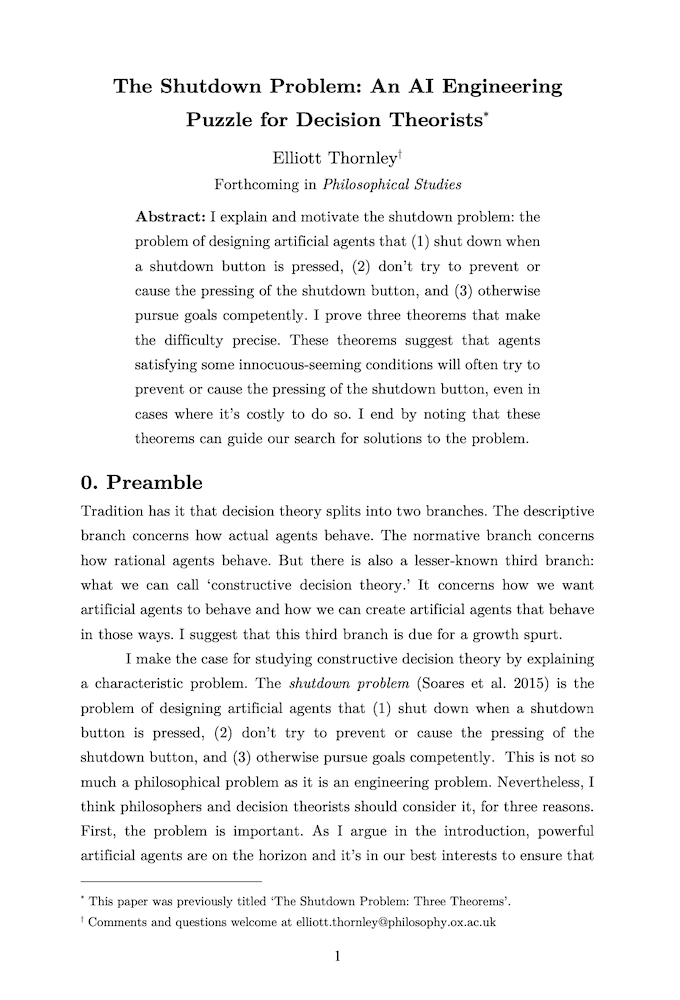The Shutdown Problem: An AI Engineering Puzzle for Decision Theorists
Elliott Thornley (Global Priorities Institute, University of Oxford)
GPI Working Paper No. 10-2024, forthcoming in Philosophical Studies
I explain and motivate the shutdown problem: the problem of designing artificial agents that (1) shut down when a shutdown button is pressed, (2) don’t try to prevent or cause the pressing of the shutdown button, and (3) otherwise pursue goals competently. I prove three theorems that make the difficulty precise. These theorems suggest that agents satisfying some innocuous-seeming conditions will often try to prevent or cause the pressing of the shutdown button, even in cases where it’s costly to do so. I end by noting that these theorems can guide our search for solutions to the problem.
Other working papers
Moral uncertainty and public justification – Jacob Barrett (Global Priorities Institute, University of Oxford) and Andreas T Schmidt (University of Groningen)
Moral uncertainty and disagreement pervade our lives. Yet we still need to make decisions and act, both in individual and political contexts. So, what should we do? The moral uncertainty approach provides a theory of what individuals morally ought to do when they are uncertain about morality…
Three mistakes in the moral mathematics of existential risk – David Thorstad (Global Priorities Institute, University of Oxford)
Longtermists have recently argued that it is overwhelmingly important to do what we can to mitigate existential risks to humanity. I consider three mistakes that are often made in calculating the value of existential risk mitigation: focusing on cumulative risk rather than period risk; ignoring background risk; and neglecting population dynamics. I show how correcting these mistakes pushes the value of existential risk mitigation substantially below leading estimates, potentially low enough to…
Against Willing Servitude: Autonomy in the Ethics of Advanced Artificial Intelligence – Adam Bales (Global Priorities Institute, University of Oxford)
Some people believe that advanced artificial intelligence systems (AIs) might, in the future, come to have moral status. Further, humans might be tempted to design such AIs that they serve us, carrying out tasks that make our lives better. This raises the question of whether designing AIs with moral status to be willing servants would problematically violate their autonomy. In this paper, I argue that it would in fact do so.

